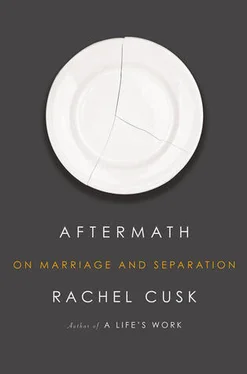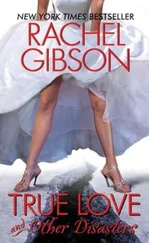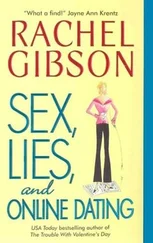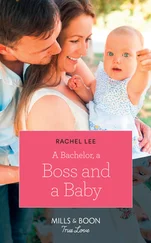Rachel Cusk - Aftermath - On Marriage and Separation
Здесь есть возможность читать онлайн «Rachel Cusk - Aftermath - On Marriage and Separation» весь текст электронной книги совершенно бесплатно (целиком полную версию без сокращений). В некоторых случаях можно слушать аудио, скачать через торрент в формате fb2 и присутствует краткое содержание. Год выпуска: 2012, Издательство: Farrar, Straus and Giroux, Жанр: Публицистика, Биографии и Мемуары, на английском языке. Описание произведения, (предисловие) а так же отзывы посетителей доступны на портале библиотеки ЛибКат.
- Название:Aftermath: On Marriage and Separation
- Автор:
- Издательство:Farrar, Straus and Giroux
- Жанр:
- Год:2012
- ISBN:нет данных
- Рейтинг книги:3 / 5. Голосов: 1
-
Избранное:Добавить в избранное
- Отзывы:
-
Ваша оценка:
- 60
- 1
- 2
- 3
- 4
- 5
Aftermath: On Marriage and Separation: краткое содержание, описание и аннотация
Предлагаем к чтению аннотацию, описание, краткое содержание или предисловие (зависит от того, что написал сам автор книги «Aftermath: On Marriage and Separation»). Если вы не нашли необходимую информацию о книге — напишите в комментариях, мы постараемся отыскать её.
Aftermath: On Marriage and Separation — читать онлайн бесплатно полную книгу (весь текст) целиком
Ниже представлен текст книги, разбитый по страницам. Система сохранения места последней прочитанной страницы, позволяет с удобством читать онлайн бесплатно книгу «Aftermath: On Marriage and Separation», без необходимости каждый раз заново искать на чём Вы остановились. Поставьте закладку, и сможете в любой момент перейти на страницу, на которой закончили чтение.
Интервал:
Закладка:
My friend has a history of her own. She too was once married; she too experienced the breaking up of that image, saw it become a pile of broken-edged pieces like the ones I carry everywhere in my hands. For a long time she lived the virginal life with her young daughter that I am living now. She was so thin you could have threaded a needle with her, had coffee flowing in her veins instead of blood, never slept because it was only when her daughter was asleep that she could live and breathe. Yet she would spend her evenings brooding and weeping instead of living. Friendship, she says, was what sustained her in that time. In Greek drama, the community shares the pain of war with the returning warriors. They come out, out into the streets to offer their love and their solicitude to those who have suffered the pain of battle. Marriage keeps other people outside, my friend says. In marriage you go away from other people, but at the end of marriage they come out to welcome you back. This is civilisation, she says. The worst thing that happened to you has brought out the best in them.
My daughters like this friend of mine. Whenever I say she’s coming to visit, their faces show pleasure instead of apprehension. They don’t fear her as they fear other people. When they look at her and her daughter, I suppose, they see the new reflection of themselves. Recently she got married again: my daughters and I went to her wedding and sat in the front row. My friend admits that she cried when she left the little house she shared with her daughter. She had recreated her own innocence there, washed away the bloodshed of relationship, rewound herself, spat out the fruit of the tree of knowledge. She clung, a little, to that recovered innocence; she stood at the altar for the second time in her wedding dress, trembling like a girl. I want to ask her whether it feels like real life yet, whether the feeling of aftermath can encompass even events of whose nature it is the consequence, but I don’t.
My daughter’s friend D has a birthday party. S and P, of course, are there. But when I turn up at the appointed time to collect her, it becomes clear that my daughter is the only one being sent home. S and P are staying the night at D’s house: the three of them are discussing the film that has been rented for their entertainment, and that will be put on as soon as my daughter leaves.
On the way home my daughter is rigid, white, silent, but eventually she can bear it no longer and I pull the car over while she sobs against my shoulder.
Why weren’t you asked to stay too? I ask her.
I don’t know, she wails. I think it was D — she only wanted the others to stay, not me. They got different invitations from mine. They were talking about it all week at school.
So you knew? I said.
She nods miserably. I am so angry, with D and the parents of D, with myself, with the world for its cruelty, that I am seized by the desire to take things into my own hands. I want justice, and I want it most of all from D, because I had liked her more than the others.
Let’s go back, I say. I want to talk to D’s parents.
Don’t, my daughter says, half-smiling though her face is still wet.
If you’d told me, I said, I would never have let you go. I would never have let that happen to you.
I suspect a calculated cruelty somewhere in my daughter’s social misfortunes. It is as though she has been ostracised, cast out; as though her parents’ separation is a mark of shame that has led others to spurn her. Is this civilisation too? People have come out to comfort me, the warrior; but to her, the victim, they show a carelessness that borders on contempt.
They probably didn’t even realise, she sighs, looking out of the window into the darkness. They probably didn’t even think about it. That’s just what people are like.
Around the corner from my house there is a florist’s. I have walked past it many times. When it is open, a green canopy is out and the pavement beneath it is like a little scented garden filled with plants and flowers, with containers overflowing with colour, with frothing drifts of blooms that sway and ripple brilliantly in the grey high-street breezes. I appreciate flowers these days. Flowers are not food. When it is closed the canopy is retracted and the garden vanishes; the shutters are tightly sealed across the shopfront. The facade is so blank it is difficult even to find it amongst the other shops.
Though I am familiar with it, something about the change from one state to the other has attracted my notice anew. I find that I recognise its rhythms and the transformation they bring, one day so blank and shuttered, the next so full of life. They remind me of the way my own house now opens and closes, is either welcoming or withdrawn, depending on the whereabouts of the children; of my new feelings of impermanence, this gypsy life that has no past or future, only a fragile itinerant present. The big supermarket down the road is always open: all day its electric doors slide stolidly back and forth, admitting and discharging streams of people. Its neon-lit space is so impersonal and so eternal that it emanates both comfort and alienation. Inside you can forget that you’re not alone, or that you are. Sometimes I buy flowers there and put them in my daughters’ bedrooms. They come in plastic sheaths, a handful of deracinated blooms, a mass-produced representation of beauty like a postcard of the Mona Lisa . They look pretty enough; after a few days I throw them away.
One day, walking past the florist’s with a friend, we stop. The canopy is out; the pavement is in its scented glory. My friend wants to buy me some flowers. Come on, she says. Let’s go in. For a moment I am frightened, as I have learned to be now of beautiful things, frightened they will contain lacerating shards of nostalgia. I don’t go near the photograph album any more, don’t look at the art books I once loved, don’t listen to the music or read the poetry that have been my life’s companions; don’t walk on the hills I walked with my husband, don’t contemplate foreign trips or visits to interesting places. And I don’t eat, for fear that nourishment will hurt me with its inferences of pleasure. Standing outside the florist’s I feel, suddenly, the completeness of my impoverishment. I feel transparent with bereavement: there is nothing, any more, I can look on and feel safe.
The plate-glass window is dark with foliage, in whose recesses the pale, waxy forms of indoor lilies and white roses stand like virginal icons. Inside there is a clean, leafy smell, and suddenly silence, tranquillity. We wander around the cool, lofty space with its fronds and ferns. At the end, behind a wooden counter, three women in green aprons are working. The counter is heaped with flowers: in their hands they hold scissors and twine. I watch for a while as they pluck the stems from the pile, deftly combining and recombining, binding the stalks with quick fingers, like classical maidens preparing their festal tributes. The bouquets grow and become splendid in their pale hands. It strikes me that they might be for a wedding, but all the same I feel a certain relief in here. There is no chromosomal presence of the male: this cool and scented place is a grove of femininity, its fecundity somehow pure, as though no conflict, no struggle of opposites needed to occur to bring these smells and shapes to completeness. I look at the different flowers in their sheaves: their pretty moulded heads, each so articulated and distinct, remind me of my daughters. I will buy some, and put them in their rooms. Perhaps I’ll also buy a fern: the soft shape and something ancient about the scroll-like leaves appeals to me. Ferns are old, older than civilisation, older than man and woman, older than right and wrong. They are sexless, having neither seeds nor flowers. They are vascular plants, conductors, sensitive to contamination. They furl and unfurl, depending on the conditions. I don’t know how I know these things, for I’ve never owned one, though I’ve always wanted to. I’ll buy a fern, and I’ll keep it alive.
Читать дальшеИнтервал:
Закладка:
Похожие книги на «Aftermath: On Marriage and Separation»
Представляем Вашему вниманию похожие книги на «Aftermath: On Marriage and Separation» списком для выбора. Мы отобрали схожую по названию и смыслу литературу в надежде предоставить читателям больше вариантов отыскать новые, интересные, ещё непрочитанные произведения.
Обсуждение, отзывы о книге «Aftermath: On Marriage and Separation» и просто собственные мнения читателей. Оставьте ваши комментарии, напишите, что Вы думаете о произведении, его смысле или главных героях. Укажите что конкретно понравилось, а что нет, и почему Вы так считаете.












